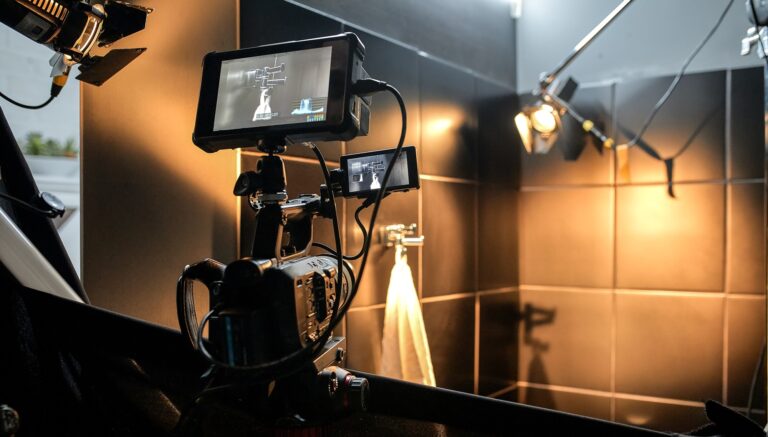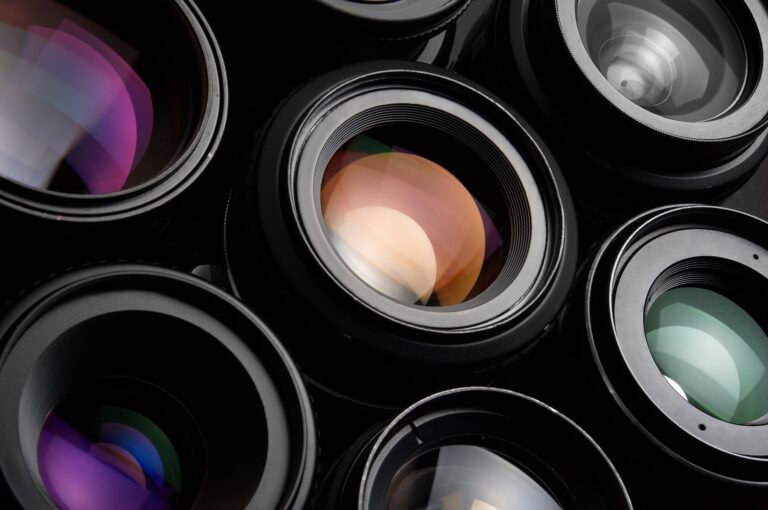In 2025, leveraging generative artificial intelligence (AI) for video marketing has become a game-changer, revolutionizing the way brands create, distribute, and optimize their video content. Generative AI, which involves using algorithms to produce new content from existing data, enables marketers to generate high-quality, personalized videos at scale, significantly reducing production time and costs. This technology can analyze vast amounts of consumer data to tailor video content to specific audience segments, enhancing engagement and conversion rates.
Additionally, generative AI can automate the editing process, create realistic virtual environments, and even generate synthetic actors, providing endless creative possibilities. By integrating generative AI into their video marketing strategies, businesses can stay ahead of the competition, delivering compelling and relevant content that resonates with their target audience in an increasingly digital and visually-driven world.
Leveraging Generative Artificial Intelligence for Personalized Video Content
In 2025, leveraging generative artificial intelligence (AI) for personalized video content has become a game-changer in the realm of video marketing. As businesses strive to capture the attention of increasingly discerning audiences, the ability to create tailored, engaging, and dynamic video content is more critical than ever. Generative AI, with its capacity to produce high-quality, customized videos at scale, offers a powerful solution to this challenge.
To begin with, generative AI can analyze vast amounts of data to understand audience preferences and behaviors. By examining metrics such as viewing history, engagement rates, and demographic information, AI algorithms can identify patterns and trends that inform the creation of personalized content. This data-driven approach ensures that the videos produced resonate with the target audience, increasing the likelihood of engagement and conversion.
Moreover, generative AI can automate the video production process, significantly reducing the time and resources required to create high-quality content. Traditional video production often involves a lengthy and labor-intensive process, from scripting and storyboarding to filming and editing. In contrast, generative AI can streamline these tasks by generating scripts, creating animations, and even editing footage autonomously. This efficiency allows marketers to produce a higher volume of content, enabling them to maintain a consistent presence across various platforms.
Transitioning to the creative aspect, generative AI offers unparalleled flexibility in content creation. It can generate a wide range of video styles, from realistic animations to abstract visuals, catering to diverse audience preferences. Additionally, AI can personalize videos by incorporating elements such as the viewer’s name, location, or past interactions with the brand. This level of customization fosters a deeper connection between the viewer and the content, enhancing the overall viewing experience.
Furthermore, generative AI can optimize video content for different platforms and devices. With the proliferation of social media and mobile usage, videos need to be adaptable to various formats and screen sizes. AI can automatically adjust the video’s aspect ratio, resolution, and length to suit the specific requirements of each platform, ensuring that the content is always presented in the best possible way. This adaptability not only improves the viewer’s experience but also maximizes the video’s reach and impact.
In addition to these benefits, generative AI can provide valuable insights into the performance of video content. By analyzing viewer engagement and feedback, AI can identify which elements of the video are most effective and which areas need improvement. This continuous feedback loop allows marketers to refine their content strategy and produce videos that consistently meet their audience’s expectations.
Looking ahead, the integration of generative AI with other emerging technologies, such as virtual reality (VR) and augmented reality (AR), holds even greater potential for personalized video content. For instance, AI-generated videos could be enhanced with interactive elements, allowing viewers to engage with the content in immersive and innovative ways. This convergence of technologies promises to create new opportunities for brands to connect with their audiences on a deeper level.
In conclusion, the use of generative artificial intelligence for personalized video content in 2025 represents a significant advancement in video marketing. By harnessing the power of AI to analyze data, automate production, and customize content, marketers can create engaging and relevant videos that resonate with their target audience. As technology continues to evolve, the possibilities for personalized video content will only expand, offering exciting prospects for brands to captivate and connect with their audiences in meaningful ways.

Enhancing Video Marketing Campaigns with AI-Driven Analytics
In 2025, the landscape of video marketing is set to be revolutionized by the integration of generative artificial intelligence (AI). This transformative technology offers unprecedented opportunities for marketers to enhance their campaigns through AI-driven analytics. By leveraging the power of AI, businesses can gain deeper insights into consumer behaviour, optimize content creation, and ultimately drive more effective marketing strategies.
To begin with, generative AI can analyze vast amounts of data at an unparalleled speed, providing marketers with real-time insights into audience preferences and engagement patterns. This capability allows for a more nuanced understanding of what resonates with viewers, enabling the creation of highly targeted and personalized content. For instance, AI algorithms can identify which types of videos are most likely to capture the attention of specific demographic groups, allowing marketers to tailor their messages accordingly. This level of precision not only enhances the viewer experience but also increases the likelihood of conversion.
Moreover, AI-driven analytics can significantly streamline the content creation process. Traditionally, producing high-quality video content has been a time-consuming and resource-intensive endeavour. However, with generative AI, marketers can automate various aspects of video production, from scripting and storyboarding to editing and post-production. AI tools can generate video scripts based on predefined parameters, suggest optimal visual elements, and even create realistic animations. This automation not only reduces production costs but also accelerates the time-to-market for video campaigns, allowing businesses to stay agile and responsive to market trends.
In addition to content creation, generative AI can also enhance the distribution and optimization of video marketing campaigns. AI algorithms can analyze viewer data to determine the best times to publish videos, the most effective platforms for distribution, and the ideal video lengths for maximum engagement. By continuously monitoring and analyzing performance metrics, AI can provide actionable recommendations for optimizing future campaigns. This iterative process ensures that marketing efforts are always aligned with audience preferences and behaviours, leading to more successful outcomes.
Furthermore, AI-driven analytics can facilitate more effective A/B testing of video content. By automatically generating multiple versions of a video and analyzing their performance, AI can identify the most impactful elements and suggest improvements. This data-driven approach allows marketers to refine their strategies with greater precision and confidence, ultimately leading to higher engagement rates and better return on investment.
Another significant advantage of generative AI in video marketing is its ability to enhance viewer interactivity. AI-powered tools can create interactive video elements, such as clickable hotspots, personalized recommendations, and real-time feedback mechanisms. These features not only make videos more engaging but also provide valuable data on viewer interactions. Marketers can use this data to further refine their content and create more immersive and personalized experiences for their audience.
As we look towards 2025, the integration of generative AI in video marketing holds immense promise. By harnessing the power of AI-driven analytics, businesses can gain deeper insights into their audience, streamline content creation, optimize distribution strategies, and enhance viewer interactivity. This holistic approach to video marketing not only improves the effectiveness of campaigns but also fosters stronger connections with consumers. As AI technology continues to evolve, the possibilities for innovation in video marketing are boundless, offering a bright and optimistic future for businesses willing to embrace this transformative tool.

Automated Video Production with Generative AI Tools
In 2025, the landscape of video marketing is set to be revolutionized by the advent of generative artificial intelligence (AI) tools. These advanced technologies promise to automate video production, making it more efficient, cost-effective, and accessible to businesses of all sizes. As we delve into the specifics of how generative AI can be harnessed for video marketing, it becomes clear that the potential benefits are vast and transformative.
To begin with, generative AI tools can significantly streamline the video creation process. Traditionally, producing high-quality video content has been a labour-intensive endeavor, requiring a team of skilled professionals, including scriptwriters, directors, videographers, and editors. However, with the integration of AI, many of these roles can be automated. For instance, AI algorithms can now generate scripts based on specific inputs such as target audience, key messages, and desired tone. This not only saves time but also ensures that the content is tailored to meet the precise needs of the marketing campaign.
Moreover, AI-driven video editing tools are capable of analyzing raw footage and automatically selecting the best clips, applying transitions, and even adding special effects. These tools leverage machine learning to understand the nuances of visual storytelling, ensuring that the final product is both engaging and professional. As a result, businesses can produce high-quality videos at a fraction of the cost and time previously required.
In addition to automating the production process, generative AI can also enhance the personalization of video content. By analyzing data from various sources, such as social media interactions, browsing history, and purchase behavior, AI can create highly customized videos that resonate with individual viewers. This level of personalization is particularly valuable in video marketing, as it increases viewer engagement and drives higher conversion rates. For example, an AI tool could generate a personalized video ad for a potential customer, highlighting products or services that align with their interests and preferences.
Furthermore, generative AI tools can facilitate the creation of dynamic video content that adapts in real-time. This means that videos can be updated automatically based on new data or changing circumstances. For instance, a retail company could use AI to generate promotional videos that reflect current inventory levels, ensuring that customers are always presented with the most relevant offers. This dynamic approach not only keeps the content fresh but also maximizes its impact.
Another exciting application of generative AI in video marketing is the ability to create virtual influencers and brand ambassadors. These AI-generated personas can interact with audiences in a lifelike manner, delivering consistent and on-brand messages. Virtual influencers can be programmed to engage with viewers through social media, live streams, and other digital platforms, providing a scalable and cost-effective alternative to traditional influencer marketing.
As we look towards the future, it is evident that generative AI will play a pivotal role in shaping the video marketing landscape. By automating various aspects of video production, enhancing personalization, and enabling dynamic content creation, AI tools offer a wealth of opportunities for businesses to connect with their audiences in innovative and impactful ways. While there are still challenges to overcome, such as ensuring the ethical use of AI and maintaining a human touch in marketing efforts, the overall outlook is undeniably optimistic. As generative AI continues to evolve, it will undoubtedly unlock new possibilities and set new standards for video marketing in 2025 and beyond.
Creating Engaging Video Ads Using Generative AI
In 2025, the landscape of video marketing is set to be revolutionized by the advent of generative artificial intelligence (AI). This cutting-edge technology offers unprecedented opportunities for creating engaging video ads that captivate audiences and drive conversions. By leveraging generative AI, marketers can produce high-quality, personalized content at scale, thereby enhancing the effectiveness of their campaigns.
To begin with, generative AI can significantly streamline the video production process. Traditional video creation often involves extensive planning, scripting, shooting, and editing, which can be both time-consuming and costly. However, generative AI can automate many of these tasks. For instance, AI algorithms can generate scripts based on specific keywords or themes, ensuring that the content aligns with the brand’s message and target audience. Additionally, AI can create realistic animations and visual effects, reducing the need for expensive production equipment and professional crews.
Moreover, generative AI excels in personalizing video content, which is crucial for engaging modern consumers. By analyzing vast amounts of data, AI can identify individual preferences and behaviors, allowing marketers to tailor their video ads to specific segments of their audience. For example, an AI-driven platform can generate different versions of a video ad, each customized to resonate with distinct demographic groups. This level of personalization not only enhances viewer engagement but also increases the likelihood of conversion, as consumers are more likely to respond to content that feels relevant to them.
Transitioning to the creative aspect, generative AI opens up new possibilities for storytelling in video marketing. AI can analyze successful ad campaigns and identify patterns that resonate with viewers, such as emotional triggers or narrative structures. By incorporating these insights, marketers can craft compelling stories that capture attention and evoke emotional responses. Furthermore, AI can experiment with various creative elements, such as music, color schemes, and pacing, to determine the most effective combinations. This iterative process ensures that the final video ad is optimized for maximum impact.
In addition to enhancing creativity, generative AI also improves the efficiency of video distribution. AI-powered platforms can analyze viewer data to determine the optimal times and channels for releasing video ads. This ensures that the content reaches the right audience at the right time, thereby maximizing its effectiveness. Furthermore, AI can monitor the performance of video ads in real-time, providing valuable insights into viewer engagement and conversion rates. Marketers can use this data to make informed decisions and adjust their strategies accordingly, ensuring continuous improvement and success.
Another significant advantage of generative AI in video marketing is its ability to facilitate A/B testing. Traditionally, A/B testing involves creating multiple versions of an ad and manually comparing their performance. However, AI can automate this process by generating numerous variations of a video ad and simultaneously testing them across different audience segments. This not only saves time but also provides more accurate and comprehensive results. By identifying the most effective ad variations, marketers can optimize their campaigns and achieve better outcomes.
Looking ahead, the integration of generative AI in video marketing is poised to become even more sophisticated. As AI technology continues to evolve, it will offer more advanced capabilities, such as real-time content generation and interactive video experiences. These innovations will further enhance the ability of marketers to create engaging and impactful video ads.
In conclusion, generative AI represents a transformative force in video marketing, offering numerous benefits in terms of efficiency, personalization, creativity, and distribution. By harnessing the power of AI, marketers can create compelling video ads that resonate with their audience and drive meaningful results. As we move forward into 2025 and beyond, the potential of generative AI in video marketing is bound to expand, ushering in a new era of innovation and success.
Optimizing Video Content for SEO with AI Technologies
In 2025, the landscape of video marketing is set to be revolutionized by generative artificial intelligence (AI) technologies, particularly in the realm of search engine optimization (SEO). As businesses increasingly rely on video content to engage audiences, optimizing these videos for search engines becomes paramount. Generative AI offers a suite of tools and techniques that can significantly enhance the SEO performance of video content, ensuring it reaches the widest possible audience.
To begin with, generative AI can analyze vast amounts of data to identify trending topics and keywords that are most likely to attract viewers. By leveraging machine learning algorithms, AI can predict which subjects will resonate with target audiences, allowing marketers to create content that is both relevant and timely. This predictive capability ensures that video content is not only engaging but also optimized for search engines from the outset.
Moreover, generative AI can assist in the creation of video scripts and storyboards that are tailored to SEO best practices. By incorporating high-ranking keywords and phrases naturally into the dialogue and descriptions, AI-generated scripts can improve the searchability of video content. This seamless integration of SEO elements into the creative process ensures that videos are optimized without compromising on quality or viewer engagement.
In addition to scriptwriting, generative AI can enhance video production through automated editing and post-production processes. AI-powered tools can analyze video footage to identify the most compelling scenes, suggest optimal cuts, and even generate subtitles and captions. These features not only streamline the production process but also contribute to better SEO performance. For instance, accurate subtitles and captions make videos more accessible and improve their ranking on search engines, as they provide additional text for search algorithms to index.
Furthermore, generative AI can optimize video metadata, including titles, descriptions, and tags. By analyzing the content and context of the video, AI can generate metadata that is both descriptive and keyword-rich, increasing the likelihood of the video appearing in search results. This automated approach to metadata generation ensures consistency and accuracy, which are crucial for effective SEO.
Another significant advantage of using generative AI in video marketing is its ability to personalize content for different audience segments. AI can analyze viewer data to identify preferences and behaviors, allowing marketers to create customized video content that appeals to specific demographics. Personalized videos are more likely to engage viewers and encourage sharing, which in turn boosts their SEO performance. Additionally, AI can generate multiple versions of a video, each optimized for different platforms and devices, ensuring maximum reach and engagement.
As we look towards 2025, the integration of generative AI in video marketing also extends to performance analytics. AI-powered analytics tools can provide real-time insights into how videos are performing, identifying which elements are driving engagement and which need improvement. This data-driven approach allows marketers to continuously refine their content and SEO strategies, ensuring sustained success in an ever-evolving digital landscape.
In conclusion, the use of generative artificial intelligence in video marketing offers a transformative approach to optimizing content for SEO. By harnessing the power of AI to analyze data, generate scripts, automate production, optimize metadata, personalize content, and provide performance insights, marketers can create highly engaging and search-friendly videos. As we move into 2025, embracing these AI technologies will be essential for businesses looking to stay ahead in the competitive world of digital marketing.

Utilizing AI for Real-Time Video Personalization
In 2025, the landscape of video marketing is set to be revolutionized by the advent of generative artificial intelligence (AI). One of the most promising applications of this technology is real-time video personalization, which allows marketers to tailor content to individual viewers on the fly. This capability not only enhances user engagement but also drives higher conversion rates, making it a game-changer for businesses looking to optimize their marketing strategies.
Generative AI, with its ability to create and modify content dynamically, is at the heart of this transformation. By analyzing vast amounts of data, including user behavior, preferences, and demographics, AI can generate personalized video content that resonates with each viewer. This process begins with the collection of data from various sources, such as social media interactions, browsing history, and purchase patterns. Machine learning algorithms then process this data to identify trends and preferences, which are used to inform the content generation process.
One of the key advantages of using generative AI for real-time video personalization is its ability to create highly relevant and engaging content. For instance, an e-commerce platform can use AI to generate personalized product recommendations within a video ad, based on a user’s past purchases and browsing history. This level of personalization not only captures the viewer’s attention but also increases the likelihood of a purchase. Moreover, AI can adapt the video’s tone, style, and messaging to align with the viewer’s preferences, further enhancing the overall experience.
Transitioning from traditional video marketing to AI-driven personalization requires a strategic approach. Initially, businesses need to invest in robust AI platforms capable of handling large datasets and generating high-quality content. These platforms should be integrated with existing marketing tools to ensure seamless data flow and real-time content delivery. Additionally, marketers must focus on creating a comprehensive data strategy that encompasses data collection, storage, and analysis. This strategy should prioritize data privacy and security, given the increasing concerns around user data protection.
As businesses implement AI-driven video personalization, they must also consider the ethical implications. Ensuring transparency in how data is collected and used is crucial to maintaining consumer trust. Marketers should provide clear information about data usage and offer opt-out options for users who prefer not to have their data used for personalization. By addressing these ethical considerations, businesses can build a positive brand image and foster long-term customer loyalty.
Looking ahead, the potential of generative AI in video marketing extends beyond personalization. As AI technology continues to evolve, we can expect more sophisticated applications, such as real-time video editing and interactive content generation. These advancements will enable marketers to create immersive and engaging experiences that captivate audiences and drive deeper connections with brands.
In conclusion, the use of generative AI for real-time video personalization in 2025 represents a significant leap forward in the field of video marketing. By leveraging AI’s capabilities to analyze data and generate tailored content, businesses can deliver highly relevant and engaging experiences to their audiences. While the transition to AI-driven personalization requires careful planning and consideration of ethical implications, the benefits in terms of user engagement and conversion rates are undeniable. As we move into this new era of video marketing, the possibilities for innovation and growth are boundless, promising an exciting future for businesses and consumers alike.

Integrating Generative AI in Social Media Video Strategies
In 2025, the integration of generative artificial intelligence (AI) into social media video strategies is poised to revolutionize the landscape of digital marketing. As businesses strive to capture the fleeting attention of online audiences, generative AI offers a powerful tool to create engaging, personalized, and dynamic video content. This technology, which leverages machine learning algorithms to generate new content based on existing data, can significantly enhance the effectiveness of social media campaigns.
To begin with, generative AI can streamline the content creation process by automating the production of high-quality videos. Traditional video production is often time-consuming and resource-intensive, requiring a team of professionals to script, shoot, and edit footage. However, with generative AI, marketers can quickly generate videos tailored to specific audiences and platforms. For instance, AI can analyze user data to identify trending topics and preferences, then create videos that resonate with these interests. This not only saves time but also ensures that the content is relevant and engaging.
Moreover, generative AI can enhance personalization in video marketing. In an era where consumers expect tailored experiences, AI can analyze individual user behaviors and preferences to create personalized video content. For example, an e-commerce brand can use AI to generate product recommendation videos based on a user’s browsing history and purchase patterns. This level of personalization can significantly increase engagement and conversion rates, as users are more likely to respond to content that feels uniquely relevant to them.
In addition to personalization, generative AI can also improve the scalability of video marketing efforts. As businesses expand their reach across multiple social media platforms, maintaining a consistent and high-quality content output can be challenging. Generative AI can address this issue by producing a large volume of videos quickly and efficiently. By automating the creation of diverse content formats—such as short clips for Instagram Stories, longer videos for YouTube, and interactive videos for Facebook—AI enables marketers to maintain a robust and varied social media presence without overextending their resources.
Furthermore, generative AI can facilitate real-time content adaptation. Social media trends and user preferences can shift rapidly, and staying ahead of these changes is crucial for maintaining audience engagement. AI-powered tools can monitor social media activity in real-time, identifying emerging trends and adjusting video content accordingly. For instance, if a particular meme or challenge is gaining traction, AI can quickly generate videos that incorporate these elements, ensuring that the brand remains relevant and timely.
Another significant advantage of generative AI in video marketing is its ability to enhance creativity. By analyzing vast amounts of data, AI can identify patterns and insights that may not be immediately apparent to human creators. This can inspire new and innovative content ideas, pushing the boundaries of traditional video marketing. For example, AI can suggest unique visual styles, narrative structures, or interactive elements that captivate audiences and differentiate the brand from competitors.
As we look towards 2025, the integration of generative AI in social media video strategies presents an exciting opportunity for marketers. By automating content creation, enhancing personalization, improving scalability, facilitating real-time adaptation, and inspiring creativity, AI can transform the way businesses engage with their audiences. While challenges such as ethical considerations and data privacy must be addressed, the potential benefits of generative AI in video marketing are immense. Embracing this technology can help brands stay ahead of the curve, delivering compelling and relevant content that resonates with the ever-evolving preferences of social media users.

AI-Powered Video Editing Techniques for Marketers
In 2025, the landscape of video marketing is set to be revolutionized by generative artificial intelligence (AI), offering marketers unprecedented tools to create, edit, and optimize video content. As AI technology continues to advance, it becomes increasingly integral to the video production process, enabling marketers to produce high-quality content with greater efficiency and creativity. One of the most significant advancements in this realm is AI-powered video editing, which leverages machine-learning algorithms to streamline and enhance the editing process.
To begin with, generative AI can analyze vast amounts of data to understand viewer preferences and trends. By processing this data, AI can suggest the most effective video formats, styles, and content types that resonate with target audiences. This data-driven approach ensures that marketers can tailor their videos to meet the specific needs and interests of their viewers, thereby increasing engagement and conversion rates. Moreover, AI can automate the editing process by identifying key moments in raw footage, such as highlights, emotional peaks, and action sequences, and seamlessly stitching them together to create a compelling narrative.
Transitioning from traditional editing techniques to AI-powered methods, marketers can also benefit from the ability to generate personalized video content at scale. Generative AI can create multiple versions of a video, each tailored to different audience segments based on demographic data, viewing history, and behavioral patterns. This level of personalization enhances the viewer’s experience, making the content more relevant and engaging. Additionally, AI can optimize videos for various platforms by automatically adjusting the format, resolution, and aspect ratio to suit the specific requirements of each platform, whether it be social media, websites, or mobile apps.
Furthermore, AI-powered video editing tools can significantly reduce the time and effort required to produce high-quality videos. For instance, AI can automate tasks such as color correction, audio enhancement, and background removal, which traditionally require extensive manual labor. By handling these technical aspects, AI allows marketers to focus on the creative elements of video production, such as storytelling and visual design. This not only accelerates the production process but also ensures a consistent level of quality across all video content.
In addition to these practical benefits, generative AI also opens up new creative possibilities for video marketing. AI algorithms can generate realistic animations, special effects, and even entirely synthetic actors, providing marketers with a broader palette of visual elements to work with. This capability enables the creation of more visually stunning and imaginative videos that capture the viewer’s attention and leave a lasting impression. Moreover, AI can assist in scriptwriting by generating dialogue and narrative structures based on predefined themes and styles, further enhancing the creative process.
As we look towards the future, it is clear that generative AI will play a pivotal role in shaping the video marketing landscape. By harnessing the power of AI-powered video editing techniques, marketers can produce more engaging, personalized, and high-quality content with greater efficiency and creativity. The integration of AI into the video production process not only streamlines technical tasks but also unlocks new creative potential, allowing marketers to push the boundaries of what is possible in video marketing. With these advancements, the future of video marketing in 2025 looks incredibly promising, offering exciting opportunities for marketers to connect with their audiences in more meaningful and impactful ways.
Predictive Analytics in Video Marketing with Generative AI
In 2025, the landscape of video marketing is set to be revolutionized by the integration of generative artificial intelligence (AI) and predictive analytics. As businesses strive to capture the attention of increasingly discerning audiences, the ability to predict and respond to consumer behavior becomes paramount. Generative AI, with its capacity to create content autonomously, offers a powerful tool for marketers to not only produce engaging videos but also to tailor them to the specific preferences and behaviors of their target audience.
Predictive analytics, a subset of advanced analytics, involves using historical data, machine learning, and statistical algorithms to predict future outcomes. When combined with generative AI, it allows marketers to anticipate trends, understand audience preferences, and create highly personalized video content. This synergy between predictive analytics and generative AI can significantly enhance the effectiveness of video marketing campaigns.
To begin with, predictive analytics can analyze vast amounts of data from various sources, such as social media interactions, website visits, and previous marketing campaigns. By identifying patterns and trends, it can forecast which types of video content are likely to resonate with specific audience segments. For instance, if the data indicates that a particular demographic responds well to short, humorous videos, generative AI can be employed to create a series of such videos tailored to that audience.
Moreover, generative AI can produce video content at an unprecedented scale and speed. Traditional video production processes are often time-consuming and resource-intensive. However, with generative AI, marketers can quickly generate multiple versions of a video, each customized for different audience segments. This not only saves time and resources but also ensures that the content is highly relevant and engaging for each viewer.
In addition to creating content, generative AI can also enhance the distribution and optimization of video marketing campaigns. Predictive analytics can determine the optimal times and platforms for releasing videos to maximize engagement and reach. For example, if the data suggests that a particular audience is most active on social media during the evening, marketers can schedule their video releases accordingly. Generative AI can then be used to adapt the video content for different platforms, ensuring that it is optimized for each one, whether it be YouTube, Instagram, or TikTok.
Furthermore, the integration of generative AI and predictive analytics allows for real-time adjustments to video marketing strategies. As new data is collected, predictive models can be updated to reflect changing audience behaviors and preferences. Generative AI can then quickly produce new content or modify existing videos to align with these updated insights. This dynamic approach ensures that video marketing campaigns remain relevant and effective over time.
The potential of generative AI and predictive analytics in video marketing extends beyond just content creation and distribution. These technologies can also provide valuable insights into the performance of video campaigns. By analyzing metrics such as view counts, engagement rates, and conversion rates, predictive analytics can identify which elements of a video are most effective. Generative AI can then be used to replicate these successful elements in future videos, continually refining and improving the overall strategy.
In conclusion, the combination of generative AI and predictive analytics offers a powerful and optimistic vision for the future of video marketing in 2025. By leveraging these technologies, marketers can create highly personalized and engaging video content, optimize distribution strategies, and make real-time adjustments to stay ahead of changing audience preferences. As businesses continue to navigate the evolving digital landscape, the integration of generative AI and predictive analytics will undoubtedly play a crucial role in driving successful video marketing campaigns.
Crafting Interactive Video Experiences Using AI
In 2025, the landscape of video marketing is set to be revolutionized by the advent of generative artificial intelligence (AI). This technology, which has already shown promise in various fields, is poised to transform how marketers create and deliver interactive video experiences. By leveraging generative AI, marketers can craft highly personalized and engaging content that resonates with their target audience on a deeper level.
One of the most significant advantages of using generative AI in video marketing is its ability to produce content that is tailored to individual viewers. Traditional video marketing often relies on a one-size-fits-all approach, which can fail to capture the diverse interests and preferences of a broad audience. However, generative AI can analyze vast amounts of data to understand viewer behavior, preferences, and demographics. This enables the creation of dynamic video content that adapts in real-time to the viewer’s interests, making the experience more relevant and engaging.
Moreover, generative AI can enhance the interactivity of video content. Interactive videos, which allow viewers to make choices that influence the storyline or outcome, have been shown to increase engagement and retention rates. With generative AI, these interactive elements can be seamlessly integrated into the video, providing a more immersive experience. For instance, AI can generate multiple narrative branches based on viewer input, creating a unique and personalized journey for each viewer. This level of interactivity not only keeps viewers engaged but also encourages them to spend more time with the content, ultimately leading to higher conversion rates.
In addition to personalization and interactivity, generative AI can also streamline the video production process. Traditionally, creating high-quality video content requires significant time, effort, and resources. However, generative AI can automate many aspects of video production, from scriptwriting and storyboarding to editing and post-production. This not only reduces the time and cost associated with video creation but also allows marketers to produce content at scale. As a result, brands can maintain a consistent and frequent presence in the digital space, which is crucial for staying top-of-mind with consumers.
Furthermore, generative AI can facilitate the creation of multilingual and culturally relevant content. In a globalized world, reaching a diverse audience is essential for any successful marketing campaign. Generative AI can automatically translate and adapt video content to different languages and cultural contexts, ensuring that the message resonates with viewers from various backgrounds. This capability not only broadens the reach of marketing campaigns but also fosters a sense of inclusivity and connection with a global audience.
As we look towards the future, it is clear that generative AI will play a pivotal role in shaping the video marketing landscape. By enabling the creation of personalized, interactive, and scalable content, this technology offers immense potential for marketers to connect with their audience in meaningful ways. While there are still challenges to overcome, such as ensuring data privacy and addressing ethical concerns, the optimistic outlook for generative AI in video marketing is undeniable. As brands continue to explore and harness the power of this technology, we can expect to see more innovative and engaging video experiences that captivate and inspire audiences around the world.
Future Trends in Generative AI for Video Marketing
Generative artificial intelligence (AI) is poised to revolutionize video marketing by 2025, offering unprecedented opportunities for creativity, efficiency, and personalization. As we look ahead, it is essential to understand the future trends in generative AI and how they will shape the landscape of video marketing. One of the most significant advancements will be the ability of generative AI to create highly realistic and engaging video content. By leveraging deep learning algorithms and vast datasets, AI can generate videos that are indistinguishable from those produced by human creators. This capability will enable marketers to produce high-quality content at a fraction of the cost and time traditionally required.
Moreover, generative AI will facilitate hyper-personalization in video marketing. By analyzing user data and preferences, AI can create tailored video content that resonates with individual viewers. This level of personalization will enhance user engagement and drive higher conversion rates. For instance, AI can generate personalized product recommendations, tutorials, or advertisements based on a viewer’s browsing history and interests. As a result, marketers will be able to deliver more relevant and compelling content to their target audience.
In addition to personalization, generative AI will also enable real-time video content creation. This capability will be particularly valuable for live events, product launches, and social media marketing. AI-powered tools will allow marketers to generate and edit video content on the fly, ensuring that they can respond quickly to emerging trends and audience feedback. This agility will be crucial in maintaining a competitive edge in the fast-paced digital landscape.
Furthermore, generative AI will enhance the storytelling aspect of video marketing. By analyzing narrative structures and audience preferences, AI can help marketers craft compelling stories that captivate viewers. This will be particularly useful for creating branded content, where storytelling is essential for building emotional connections with the audience. AI can also assist in scriptwriting, scene composition, and even voiceover generation, streamlining the entire video production process.
Another exciting trend is the integration of generative AI with augmented reality (AR) and virtual reality (VR) technologies. This combination will open up new possibilities for immersive and interactive video experiences. For example, AI-generated characters and environments can be seamlessly integrated into AR and VR applications, creating engaging and memorable experiences for users. This will be particularly valuable for industries such as gaming, entertainment, and e-commerce, where immersive experiences can drive user engagement and sales.
Moreover, generative AI will play a crucial role in optimizing video content for different platforms and formats. With the proliferation of social media and streaming services, marketers need to create content that is optimized for various channels and devices. AI can automatically generate multiple versions of a video, each tailored to the specific requirements of different platforms. This will ensure that the content is always presented in the best possible way, maximizing its impact and reach.
As we move towards 2025, it is clear that generative AI will be a game-changer for video marketing. By enabling high-quality content creation, hyper-personalization, real-time editing, enhanced storytelling, immersive experiences, and platform optimization, AI will empower marketers to connect with their audience in more meaningful and impactful ways. While there are challenges to overcome, such as ethical considerations and data privacy concerns, the potential benefits of generative AI in video marketing are immense. As technology continues to evolve, marketers who embrace these trends will be well-positioned to thrive in the dynamic digital landscape of the future.
Abschluss
In 2025, leveraging generative artificial intelligence (AI) for video marketing involves several key strategies. Firstly, AI can be used to create personalized video content at scale, tailoring messages to individual viewer preferences and behaviors. Secondly, generative AI can automate the production of high-quality video content, reducing the time and cost associated with traditional video creation. Thirdly, AI-driven analytics can optimize video performance by providing insights into viewer engagement and suggesting real-time adjustments. Additionally, AI can enhance interactive video experiences, enabling dynamic content that responds to viewer inputs. Finally, integrating generative AI with other marketing technologies can create a seamless, data-driven approach to video marketing, ensuring that content is not only engaging but also strategically aligned with broader marketing goals.





